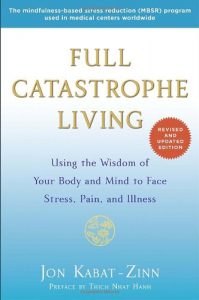
Over the years, I’ve read too many books to count about stress, anxiety, and depression. Like most people, I’m always looking for tips and clues about how to handle things better.
Some of these books have turned out to be real stinkers. Others, retreads of books and articles that have said the same things over and over again.
I have found some gems, though. Books that have something original to say, or are well-written.
I’ve found that the most useful ones make me want to read them further after the first 25-pages, or so. Good rule of thumb.
I hope you find help, hope, and insight between their pages.
Manage Your Time to Reduce Your Stress: A Handbook for the Overworked, Overscheduled, and Overwhelmed — Rita Emmett
The title of this book grabbed my attention because it seemed to capture so much more than just stress management. Stress management is truly about managing being overworked, overscheduled, and overwhelmed.
According to the author, the key is not time management but “stuff management — taking control of all those tasks to do, people to see, commitments and obligations to fulfill. Mismanagement of all that “to-do” stuff is what leads to stress. Emmett combines quick, easy-to-digest tips and infectious good humor to give readers positive ways to handle stress and their overly busy lives.
You can also check out her website for other helpful tips and ideas.
Monkey Mind: A Memoir on Anxiety — Daniel Smith
I first read about Smith’s book in a New York Times article called “Panic Buttons“. This memoir on stress and anxiety is not only informative and insightful, it’s well-written and funny.
The long list of things that, over the years, have made Daniel Smith nervous includes sex, death, work, water, food, air travel, disease, amateur theater, people he’s related to and people he’s not related to, so the prospect of a book review probably wouldn’t seem like a very big deal to him. Or would it?
This fleet, exhausting memoir, is an attempt to grapple with a lifetime of anxiety: to locate its causes, describe its effects and possibly identify a cure. Or, if not a cure, at least a temporary cessation of the worry that’s been plaguing him since his youth.
Check out his website, The Monkey Mind Chronicles, for more interesting stuff.
Hardwiring Happiness: The New Brain Science of Contentment, Calm, and Confidence — Rick Hanson
Rick Hanson, Ph.D. is a neuropsychologist and best-selling New York Times author.
Hardwiring Happiness lays out a simple method that uses the hidden power of everyday experiences to build new neural structures full of happiness, love, confidence, and peace.
In an interview discussing the book, he states:
“So, how do you get good things—such as resilience, self-worth, or love—into your brain? These inner strengths are grown mainly from positive experiences. Unfortunately, to help our ancestors survive, the brain evolved a negativity bias that makes it less adept at learning from positive experiences but efficient at learning from negative ones. In effect, it’s like Velcro for the bad but Teflon for the good.
This built-in negativity bias makes us extra stressed, worried, irritated, and blue. Plus it creates a kind of bottleneck in the brain that makes it hard to gain any lasting value from our experiences, which is disheartening and the central weakness in personal development, mindfulness training, and psychotherapy”.
Check out his website for more information about the book and his suggestions.
Why Zebras Don’t Get Ulcers: An Updated Guide to Stress, Stress-Related Diseases and Coping – Robert Sapolsky, Ph.D.
Why don’t zebras get ulcers–or heart disease, clinical anxiety, diabetes and other chronic diseases–when people do?
In a fascinating that looks at the science of stress, Stanford biologist Robert Sapolsky presents an intriguing case, that people develop such diseases partly because our bodies aren’t designed for the constant stresses of a modern-day life – – like sitting in daily traffic jams or racing through e-mails, texting and running to pick up our kids after a tough day at work. Rather, humans seem more built for the kind of short-term stress faced by a zebra–like outrunning a lion.
This book is a primer about stress, stress-related disease, and the mechanisms of coping with stress. How is it that our bodies can adapt to some stressful emergencies, while other ones make us sick? Why are some of us especially vulnerable to stress-related diseases and what does that have to do with our personalities?”
Sapolsky, a neuroscientist, concludes with a hopeful chapter, titled “Managing Stress.” Although he doesn’t subscribe to the school of thought that hope cures all disease, Sapolsky highlights the studies that suggest we do have some control over stress-related ailments, based on how we perceive the stress and the kinds of social support we have.
Full Catastrophe Living: Using the Wisdom of Your Body and Mind to Face Stress, Pain, and Illness – John Kabat-Zinn, M.D.
As a busy lawyer, I was immediately attracted to the title Full Catastrophe Living. It literally leapt of the bookshelf and cracked me on the head. Who doesn’t live a life so jammed with stuff to do that it feels like a catastrophe?
Chronic stress saps our energy, undermining our health, and making us more vulnerable to anxiety, depression, and disease. The heart of the book is based on Kabat-Zinn’s renowned mindfulness-based stress reduction program at the University at Massachusetts Medical Center.
The author takes the phrase “full catastrophe living” from book and movie “Zorba the Greek”. If you’ve never seen it, an Englishman Basil – – who is half-Greek – – inherits a run down mine in a small Greek town. To help him restore it, he hires a local character named Zorba to be the foreman of the local laborers. Zorba, full of the zest of a life truly lived, is asked by Basil, “Do you have a family?” Zorba responds “Wife, children, house – – the full catastrophe!!!”
Undoing Perpetual Stress: The Missing Connection Between Depression, Anxiety and 21st Century Illness – Richard O’Connor, Ph.D.
Author of my favorite book on depression, “Undoing Depression”, Richard O’Connor, Ph.D., has written another simply brilliant book on the consequences of “perpetual” stress in our lives – the alarming and escalating rates of clinical anxiety and depression. This was the first book I read that made clear to me the connection between stress, anxiety, and depression. It formed the basis for my blog on the topic How Stress and Anxiety Become Depression. The human nervous system was never meant to handle this many stressors. It’s as if the circuit breakers in our brains are blown by too much stress running through our brain’s circuitry. This book is a perfect fit if you want to learn a lot about the brain and physiology of stress – I found it fascinating. If you’re looking for a quick read and pick-me-up, this isn’t it. Check out his website.
A Mindfulness-Based Stress Reduction Workbook — Bob Stahl
The author writes that the key to maintaining balance is responding to stress not with frustration and self-criticism, but with mindful, nonjudgemental awareness of our bodies and minds.
This book employs some of the same mindfulness strategies discussed in Full Catastrophe Living but does it in the format of a workbook. I find this format very helpful because it’s practical and gives me exercises to do to put into practice mindfulness to reduce my daily stress load.
The 10 Best-Ever Anxiety Management Techniques – Margaret Wehrenberg, Ph.D.
Medication, once considered the treatment of choice, is losing favor as more and more sufferers complain of unpleasant side effects and its temporary, quick-fix nature. Now, thanks to a flood of fresh neurobiology research and insights into the anatomy of the anxious brain, effective, practical strategies have emerged allowing us to manage day-to-day anxiety on our own without medication. Addressing physical, emotional, and behavioral symptoms, Margaret Wehrenberg, Ph.D., a leading mental health clinician, draws on basic brain science to highlight the top ten anxiety-defeating tips. Everything from breathing techniques to cognitive control and self-talk are included. I really like that the 10 chapters are highly readable and short. Dr. Wehrenberg is also a frequent blogger at the Psychology Today website. Here’s one of her blogs, The One-Two Punch of Negativity and Fear.
Things Might Go Terribly, Horribly Wrong: A Guide to Life Liberated from Anxiety – Troy DuFrene
This book approaches the problem of anxiety a little differently than most. Instead of trying to help you overcome or reduce feelings of anxiety, it will help you climb inside these feelings, sit in that place, and see what it would be like to have anxiety and still make room in your life to breathe and rest and live, really and truly live, in a way that matters to you. This approach is based upon a research-supported form of psychotherapy called Acceptance and Commitment Therapy, also known as ACT which starts with the assumption that the normal condition of human existence is suffering and struggle, ACT works by first encouraging individuals to accept their lives as they are in the here and now. This acceptance is an antidote to the problem of avoidance, which ACT views as among the greatest risk factors for unnecessary suffering and poor mental health
The Worry Cure – Robert L. Leahy
For “highly worried people,” or those who suffer from the “what-if disease,” this book presents a systematic, accessible self-help guide to gaining control over debilitating anxiety. Leahy is an expert in changing thought processes, and he walks worriers step-by-step through problems in the way they think, with pointers on how to change these biases. The author then outlines a seven-step worry-reduction plan (remember, I love plans!) beginning with identifying productive and unproductive worry, progressing to improving skills for accepting reality, challenging worried thinking and learning to harness unpleasant emotions such as fear or anger.
Self-Coaching: The Powerful Guide to Beat Anxiety – Joseph J. Luciani, Ph.D.
This is a good book for those who don’t want to see a therapist or, if they do, need extra doses of encouragement and practice to overcome their stress and anxiety. The author advises readers to identify themselves as specific personality types (e.g., “Worrywarts,” “Hedgehogs,” “Perfectionists”) and then gives specific instructions on how to change the particular thought patterns associated with this type of personality. So many people who struggle with anxiety never got what they needed while growing up – – enough love, encouragement, and affirmation. Lacking these core experiences, we develop can develop particular maladaptive strategies to cope with people and situations that push our buttons. This is the only book that I’ve read that pairs specific coping recommendations with particular personality types.
What books would you recommend? Hit the comment button and submit your favorites.
Next Steps:
If you are interested in talking to Dan about CLE eligible trainings he offers law firms, call him at (716) 913-6309 or via our contact form. One-on-one coaching is also available for lawyers who need individualized attention. Go to Dan’s website Yourdepressioncoach.com to download his free book and schedule a consultation.












